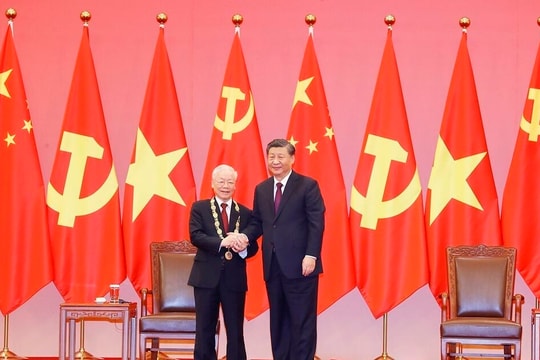General Secretary Nguyen Van Cu - Outstanding leader of the Party
(Baonghean.vn) - Although Nguyen Van Cu's life was short, he was murdered by the enemy when he was only 29 years old, but he left us a brilliant revolutionary career of a young General Secretary with great ambition, talent, loyalty to the country, and devotion to the people.
Comrade Nguyen Van Cu was born on July 9, 1912 in a poor intellectual family of the Nguyen Trai clan, in Phu Khe village, Nghia Lap commune, Tu Son district, Bac Ninh province (now Phu Khe village, Phu Khe commune, Tien Son district, Bac Ninh province).
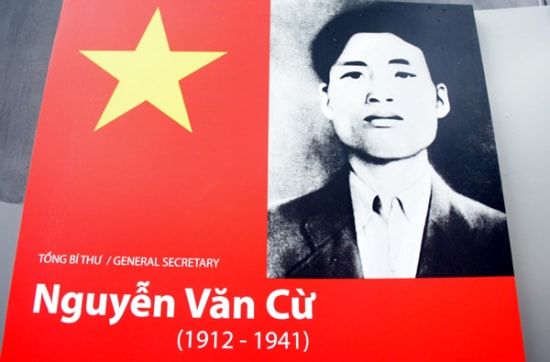 |
| Former General Secretary Nguyen Van Cu. Photo: Document |
In the fall of 1927, Nguyen Van Cu took the entrance exam to Buoi School in Hanoi (formerly Lycée du Protectorat, now Chu Van An High School, Hanoi), passed with honors, was awarded a full scholarship and was allowed to stay in a dormitory.
During his years at Buoi School, he met many friends and senior students and was told about the struggles that took place in the school, such as the strike to protest the French colonial government's conviction of patriot Phan Boi Chau, demanding a memorial service and mourning for patriot Phan Chu Trinh... Nguyen Van Cu's patriotic and national salvation thoughts began from there.
At the end of 1928, Nguyen Van Cu was admitted to the Vietnam Revolutionary Youth Association. While in his second year of high school, Nguyen Van Cu was expelled from school for writing poems criticizing Western flatterers.
After leaving Buoi School, Nguyen Van Cu returned to his hometown to teach privately in Ha Lo village. During this time, Nguyen Van Cu was assigned by comrade Ngo Gia Tu, then Secretary of the Bac Ninh Provincial Association of the Vietnam Revolutionary Youth Association, to build a base for the Vietnam Revolutionary Youth Association in the area along the Cau River.
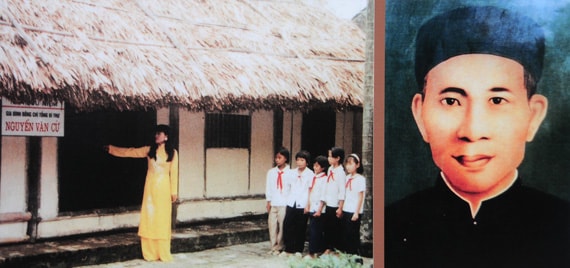 |
| The house, the birthplace and place where former General Secretary Nguyen Van Cu grew up in Phu Khe village, Phu Khe commune, Tu Son district, Bac Ninh province. The photo must be of Mr. Nguyen Trong Mao (a scholar), the father of comrade Nguyen Van Cu. |
At the end of 1928, Nguyen Van Cu secretly left Bac Ninh to work in the Northeast mining area. This was the first time Nguyen Van Cu lived with the working class (eating, living and working together), and then spent his whole life striving and sacrificing for the ideals of that class, becoming the highest leader in the revolutionary movement in the Northeast mining area of the Fatherland. That year, Nguyen Van Cu was only 17 years old.
In June 1929, when the Indochinese Communist Party was founded, Nguyen Van Cu became one of the first communist members of the Party. Nguyen Van Cu worked hard to build a grassroots Party organization, and in June 1929, Nguyen Van Cu and his like-minded comrades established a Party cell in Uong Bi - Vang Danh (Quang Ninh), including a number of miners, mechanics and members of the Vietnam Revolutionary Youth Association. On February 3, 1930, the Communist Party of Vietnam was founded, Nguyen Van Cu became a member of the Party, holding the position of Secretary of the Hon Gai - Uong Bi Special Zone Committee.
On February 15, 1931, on the way from Cam Pha to Hon Gai, Nguyen Van Cu was captured by the enemy. The enemy transferred Nguyen Van Cu from Hon Gai to Hanoi and imprisoned him in Hoa Lo. At Hoa Lo prison, Nguyen Van Cu devoted himself to studying theory and politics persistently and voluntarily.
Unable to get anything out of comrade Nguyen Van Cu, the French colonialists were forced to bring Nguyen Van Cu to trial. On May 13, 1931, the Northern Criminal Court sentenced Nguyen Van Cu to 20 years of exile and exile to Con Dao. Arriving in Con Dao, Nguyen Van Cu met comrades Le Duan, Pham Van Dong, Ha Ba Cang and many other comrades. Nguyen Van Cu joined the Party cell in Con Dao.
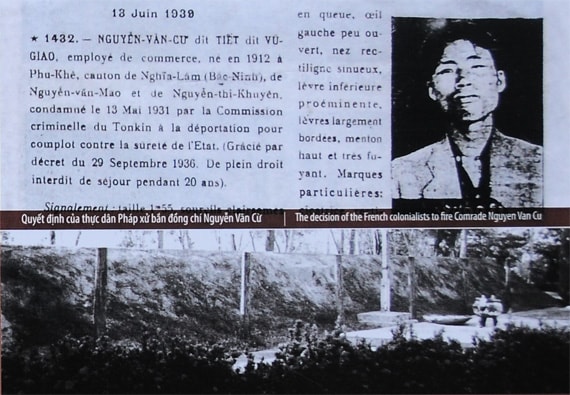 |
| Hoc Mon - Gia Dinh firing range, where French colonialists executed former General Secretary Nguyen Van Cu on August 28, 1941. |
In Con Dao, Nguyen Van Cu and his comrades participated in many struggles against the harsh prison regime and demanded better living conditions; participated in translating some classic works into Vietnamese and copying them into cigarette papers, to widely disseminate them to other comrades. During the years of suffering in prison, Nguyen Van Cu and his comrades turned the prison into a revolutionary school, a place to forge the will and mettle of a revolutionary soldier.
In 1936, a movement arose in Vietnam and France demanding that the French authorities release political prisoners in Indochina. The struggle yielded results, on September 29, 1936, the French authorities in Indochina were forced to release a number of political prisoners, including Nguyen Van Cu.
In early 1938, Nguyen Van Cu secretly left Hanoi for Saigon to attend the Party Central Committee Conference, convened in Hoc Mon, Gia Dinh, from March 29 to 30, 1938. The conference reviewed the activities of the Party and mass organizations from the September 1937 Conference to the present, and set out policies suitable to the new situation.
On March 30, 1938, the Conference elected the Party Central Committee and appointed the Central Standing Committee. Comrade Nguyen Van Cu was elected General Secretary of the Central Committee of the Indochinese Communist Party, the youngest General Secretary in the history of our Party. From then on, as the highest leader of the Party, Comrade Nguyen Van Cu directly led the Vietnamese revolutionary movement.
As General Secretary, realizing that the international situation was changing unfavorably for the Vietnamese and Indochina revolutions, comrade Nguyen Van Cu soon raised the issue of changing the Party's strategic direction; directed the timely publication of the book "Secret Work of the Party" to be sent to Party Committees at all levels; directly convened and chaired the expanded Conference of the Northern Regional Party Committee...
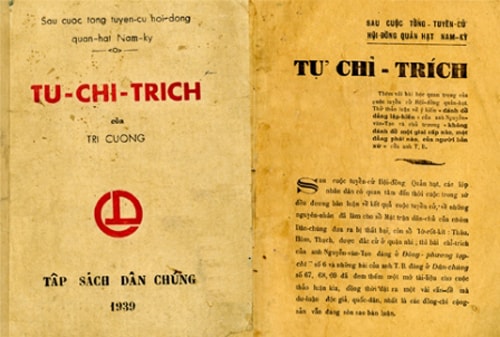 |
| The book "Self-criticism" was compiled by comrade Nguyen Van Cu after the general election of the Council of Governors in Cochinchina, in 1939. Photo archive |
Thanks to the timely direction of the Party, the Vietnamese revolutionary movement continued to develop strongly in a new direction. The revolutionary forces also avoided great losses when the enemy turned against them and suppressed them, contributing to the victory of the historic August Revolution.
General Secretary Nguyen Van Cu was also a pioneer in promoting the spirit of frank criticism and self-criticism to enhance the Party's strength, demonstrated through the work "Self-criticism" written in July 1939.
The work "Self-criticism" demonstrated the wisdom in political thinking of an experienced and talented leader, and at the same time demonstrated the brilliant intelligence of our Party in enriching the treasure of Marxist-Leninist theories...
On January 18, 1940, on the way from Hai Soc's house in Ba Diem village - where comrade Nguyen Van Cu was living at that time - to the Party office on Nguyen Tan Nghiem street (now in Ho Chi Minh City) to discuss work with comrades Le Duan, Nguyen Van Hieu..., due to being exposed, Nguyen Van Cu was arrested along with two of his comrades. The Saigon military court again accused comrade Nguyen Van Cu of "having spiritual responsibility for the uprising" and sentenced Nguyen Van Cu to death.
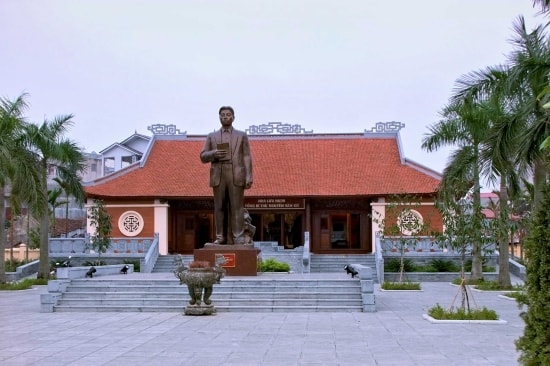 |
| Memorial area of late General Secretary Nguyen Van Cu in Phu Khe Thuong village, Phu Khe commune, Tu Son town, Bac Ninh province. Photo: Internet |
Early in the morning of August 28, 1941, comrade Nguyen Van Cu walked out to the execution ground. The revolutionary slogans that General Secretary Nguyen Van Cu and his comrades shouted before being executed by the French still resonate today.
At the age of 29, with more than 13 years of revolutionary activities, including nearly 7 years of imprisonment in an imperial prison, General Secretary Nguyen Van Cu has made many outstanding contributions to the Party and the Vietnamese revolution. Most outstanding in him is the spirit of self-criticism and criticism, aiming to make our Party unified in ideology and action, truly clean, and improve the leadership capacity and fighting strength of the Party.
Peace
(Synthetic)
| RELATED NEWS |
|---|


